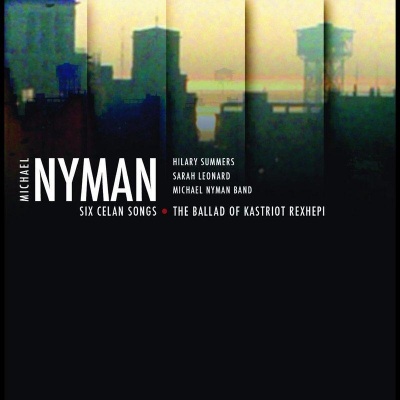
Six Celan Songs/The Ballad of Kastriot Rexhepi
Six Celan Songs is Michael Nyman’s most profound song cycle, composed in 1990 for Ute Lemper. Nyman selected six of Paul Celan’s less hermetic texts, accidentally, perhaps, all featuring flower symbolism in a kind of ‘negative theology’, representing Celan’s attempt as a poet to come to terms with the impossibility, according to Adorno, of writing poetry ‘after Auschwitz’. The songs, individually and collectively, express both the horror, the emptiness of the writer in exile and are cast in a musical language which attempts to ‘reinvent’ an imaginary emotional world related to the Romanian background in 1920s Bukovina, where Celan was born. The texts are taken from Celan’s following collections: ‘Chanson einer Dame im Schatten’ and ‘Corona’ from Mohn und Gedachtnis (Poppy and Memories) (1952), ‘Nachtlich geschurzt’ from Von Schwelle zu Schwelle (From Threshold to Threshold) (1955), ‘Blume’ from Sprachgitter (Speech-Grille) (1959), and ‘Es war Erde in ihnen’ and ‘Psalm’ from Die Niemandsrose (The No One’s Rose) (1963).
